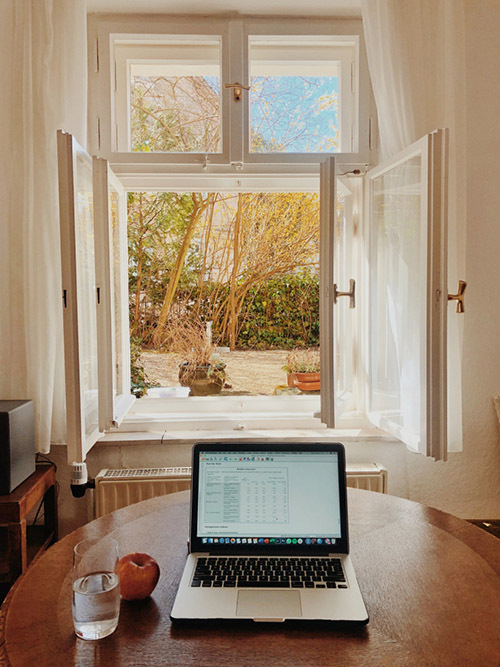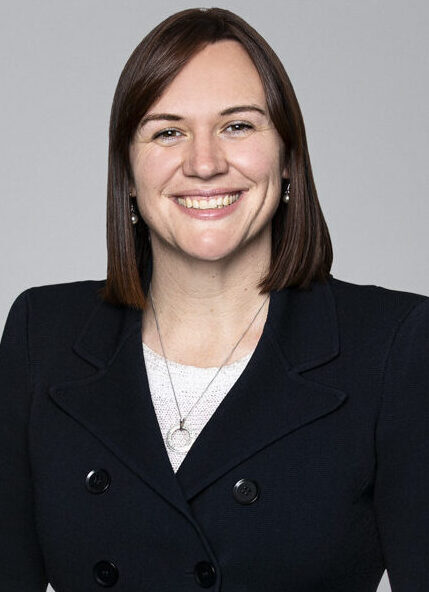- Winter 2022
- Collegiality and remote practice-avoiding isolation
Collegiality and remote practice-avoiding isolation


Barristers’ traditional mode of practice across generations – in physical chambers, managed by a clerk – has shaped the concepts of collegiality at the bar in important ways, from the open-door policy, to Friday night drinks, and the colleagues from whom a barrister will seek professional and personal support. Without that support, a barrister runs the risk of becoming isolated. That can pose professional conduct risks.
As Jocelyn Sparks, the (outgoing) director professional conduct for the NSW Bar Association, told us:
People who don’t engage with their colleagues in the profession or avail themselves of the collegiality of the profession have, in the past, been a source of concern for the staff of the professional conduct team, who are at the frontline of the complaints-handling process. We noted over the years that a significant proportion of barristers about whom multiple complaints have been received are barristers who operate from home or in virtual chambers. A barrister who has put in place adequate structures for support, such as collegiality (which might include being in formal chambers, seeking out mentorship or other support, such as maintaining links to tutors even after the reading year is completed), will have at least mitigated the risk of having complaints made about them.
The changes brought to the bar by technological advances and social shifts, and accelerated by the response of the courts, the profession and the community to the COVID-19 pandemic, mean that it is now easier for barristers to work remotely. More and more barristers are choosing to do so. That might raise the question of whether that also increases the risk of isolation among barristers, and, perhaps, the professional conduct risks as a result.

Jocelyn again:
Although the number of barristers operating in a non-traditional way has, of course, changed in the past two years due to the pandemic, the professional conduct staff have not seen an escalation in complaints based on that factor alone. This suggests that practitioners have been able to adapt well to ensure that their professional standards, their practices and personal well-being have not suffered, just because members of the profession were suddenly physically distanced from each other. This ability to modernise and take a versatile approach at such short notice is very reassuring.
This is consistent with the experiences of two barristers we spoke to. Sean Flood is the founder of the virtual Kaloola Chambers and has worked remotely for 16 years. Victoria Brigden is at 8 Selborne, and worked largely remotely during the various lockdowns but returned to chambers once the lockdowns were lifted, and now works remotely an average of one day per week.

Sean Flood, Kaloola Chambers
I started working from home 16 years ago, after I’d been at the bar for two years. When my son was due to be born, I made a conscious decision that I wanted to be around. I expected that at some stage I would return to chambers. My biggest concern was that solicitors would not continue to brief me because I was not in chambers. I was most concerned about the Commonwealth DPP, because I did not have an established relationship with them at the time. They did not care at all! They were happy to have me come to conferences in their offices rather than them needing to come to chambers. They are now 90% of my practice and have been for at least the last five years. I stay in touch with other barristers and lawyers because the very nature of the job involves human communication – and that is my personality style anyway. My experience of the bar has absolutely been collegiate. It is one of the great things about the bar. Even since working from home, I have developed relationships and kept in contact with various friends and colleagues, including friends from my readers’ course, silks I have been junior to, others who I might see from time to time at court and the solicitors I work with. The opportunities presented by the Bar Association, including joining a committee and the mentoring program, also provide ways to meet a wider range of barristers. My experience of the bar as collegiate has not changed very much over time, although during COVID-19, the opportunities to run into people in court were zero. It was more likely that I would call someone or drop them an email. When questions arise in my practice, I will use my existing relationships to make those sorts of double checks that we all make. I feel like I had the ethical obligations drilled into me through all the various courses of study I encountered in order to become a barrister. I am also aware of the service that exists through Bar Association. On one occasion, when an ethical question arose in my practice, I used the list of silks on PCCs to identify someone I knew I could speak openly to. They gave me advice, which I took. I think it is important to ensure that there is a range of ways that barristers can practise, and working from home has been a good way for me to practise. But I would not advise any new barrister to start out by practising from home. The decision to work from home is one that can be made later, after you have had that opportunity to get established with what the proper norms of the bar should be.

Victoria Bridgen, 8 Selbourne
For seven years before COVID-19, since I returned to work following the birth of my first child, I worked from home an average of about one day per week. After COVID hit, I worked from home during the whole of the first lockdown in March—April 2020, including running hearings from home. I found that challenging for many reasons, not least because my children were home. The house we were in was open plan, and the study did not have a door. During the second lockdown in 2021, I worked from home unless I was appearing in court or a mediation. Although those appearances were all online, I found it easier to come into chambers to conduct them, including because I was appearing with senior counsel who were appearing from chambers. I think the bar is very collegiate, which is demonstrated by the fact that you can be in a case with someone one day and against them the next and still get on well with them. By and large, I have found that people are very supportive and encouraging, and that there is a general willingness among barristers to spend time with other barristers. During lockdowns, I was not in touch with as many barristers as I normally would have been. I stayed in touch with some barrister friends and colleagues via phone, emails and text messages and Saturday afternoon Zoom drinks. I had no real face-to-face contact with other barristers during that time except with silks who were leading me during hearings. The contact I did have with barristers required a lot more effort than in non-lockdown times. If I have an ethical question, my normal approach is to speak to a silk on a PCC, or a silk who I think has some expertise in the particular area concerned. If that person is on my floor, I will go see them in person. In chambers, it is easier to get a sense if someone’s available by whether they are in and their door is open. Being in chambers makes those conversations easier, but in any event, if I cannot see someone in person, I will call or email them. I am now back in chambers most of the time – usually four days per week, sometimes five. I have found that working from home is easier than it was prior to COVID-19, as it has been more widely adopted and is therefore more acceptable. One of the biggest changes I have noticed which allows me to work from home one day a week with greater ease is that most of my conferences are now video-conferences via Zoom or Teams or the like. Face-to-face conferences do occur, but are rarer than prior to COVID-19, and it is also now rare that I have a teleconference. The shift away from face-to-face conferences has made working from home easier. That said, my strong preference is to work in chambers the vast majority of the time. I find I generally work better there, enjoy being around other barristers and have greater support and resources (e.g, my chambers staff, a decent printer and textbooks).

Sean’s and Victoria’s experiences both demonstrate that it is possible to avoid isolation, and to experience the normal collegiality of the bar while working remotely, although it can involve more work. And it will not suit everyone all of the time. This is also borne out by the observations of Trish Hoff, clerk to 12 Wentworth Selborne Chambers. Trish described the changes that 12 Wentworth Selborne Chambers has seen during the course of COVID-19:
From having virtually no-one (unless on parental leave) working remotely on a regular basis, to most barristers working from home during lockdowns, the ‘new normal’ in 2022 is that our barristers are back in chambers most of the time (unless on parental leave). The difference is that, on occasion when necessary or desirable, barristers will work remotely doing mentions, directions, conferences and preparation without a second thought.

That was not the case pre-COVID-19.
What remained consistent was the support provided by the floor. During lockdowns, there were remote gatherings for barristers to participate in, and the head of chambers was always available for advice and support.
The bar is changing, and the ways barristers work, socialise and seek support are likely to continue to change as well. BN
